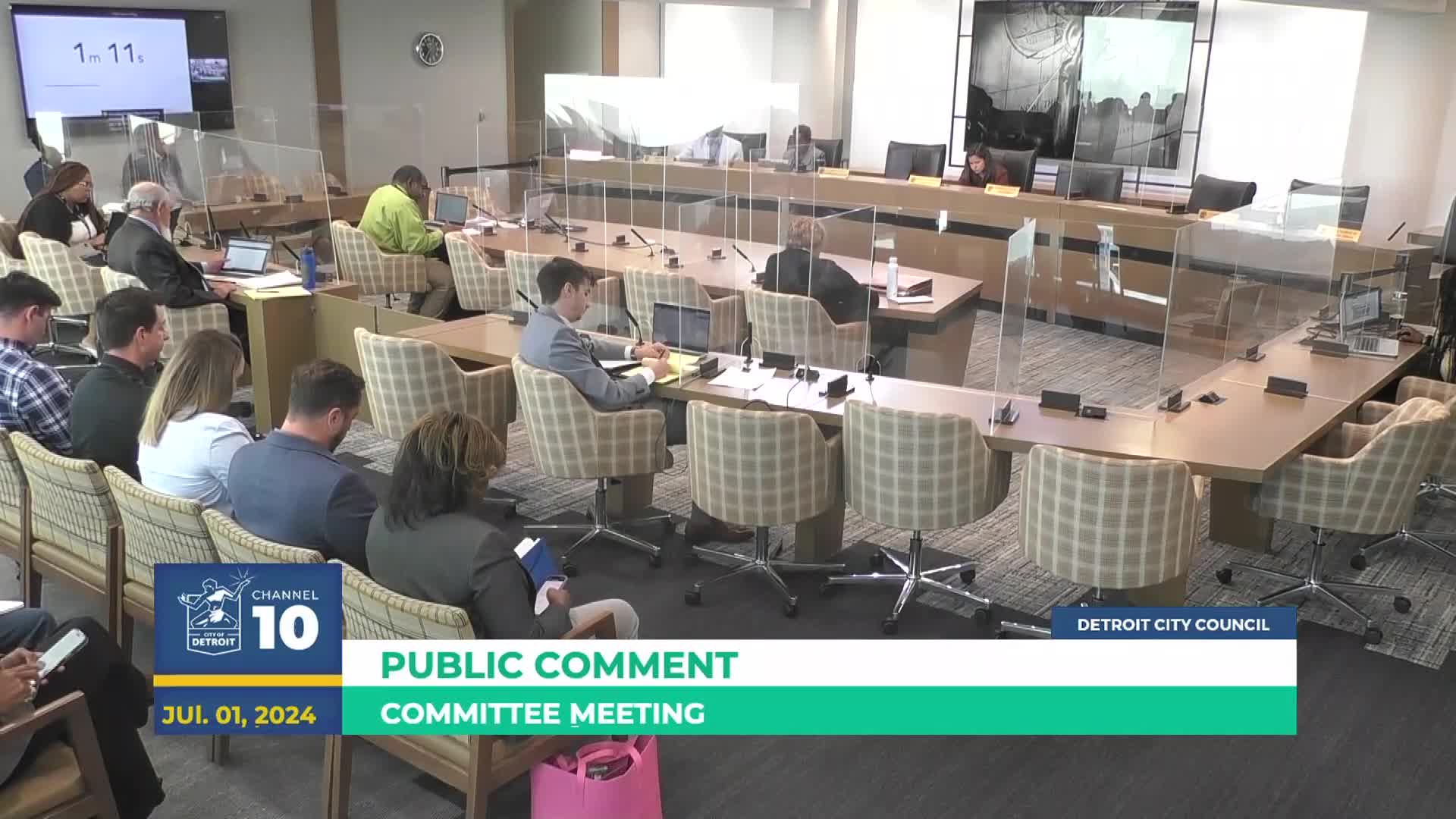City Council Faces Backlash Over Controversial Solar Initiative
July 01, 2024 | Detroit, Wayne County, Michigan

This article was created by AI summarizing key points discussed. AI makes mistakes, so for full details and context, please refer to the video of the full meeting. Please report any errors so we can fix them. Report an error »

During a recent government meeting, significant concerns were raised regarding the administration's proposed solar initiative and the process surrounding public hearings. Community members expressed frustration over the format of public hearings, urging that they should allow for genuine dialogue rather than merely serving as platforms for presentations followed by limited public comment.
One speaker highlighted the urgency of the solar initiative, arguing that it is premature to sign any agreements without a thorough understanding of the implications. They questioned the necessity of the initiative, pointing out that there is no consensus on its urgency and suggesting that solar panels should first be installed on public buildings before considering larger projects. The speaker also criticized the lack of transparency regarding the contracts associated with the initiative, emphasizing that the public has not been adequately informed about the potential use of eminent domain to acquire private land for solar fields.
Concerns were also raised about the issue of blight, with one participant noting that a significant portion of the property in question is controlled by the mayor through the land bank. This raised questions about accountability and the justification for using eminent domain, which some argued could set a dangerous precedent without proper due diligence.
Another caller, O'Day Fekauri, COO of America's Community Council, echoed these sentiments, advocating for solar panels to be placed on rooftops rather than in large fields. He emphasized the importance of a well-planned approach to renewable energy initiatives, reflecting a broader community desire for sustainable solutions that do not compromise private property rights.
The discussions highlighted a growing demand for transparency and community involvement in decision-making processes, particularly regarding significant initiatives that impact local residents and their properties.
One speaker highlighted the urgency of the solar initiative, arguing that it is premature to sign any agreements without a thorough understanding of the implications. They questioned the necessity of the initiative, pointing out that there is no consensus on its urgency and suggesting that solar panels should first be installed on public buildings before considering larger projects. The speaker also criticized the lack of transparency regarding the contracts associated with the initiative, emphasizing that the public has not been adequately informed about the potential use of eminent domain to acquire private land for solar fields.
Concerns were also raised about the issue of blight, with one participant noting that a significant portion of the property in question is controlled by the mayor through the land bank. This raised questions about accountability and the justification for using eminent domain, which some argued could set a dangerous precedent without proper due diligence.
Another caller, O'Day Fekauri, COO of America's Community Council, echoed these sentiments, advocating for solar panels to be placed on rooftops rather than in large fields. He emphasized the importance of a well-planned approach to renewable energy initiatives, reflecting a broader community desire for sustainable solutions that do not compromise private property rights.
The discussions highlighted a growing demand for transparency and community involvement in decision-making processes, particularly regarding significant initiatives that impact local residents and their properties.
View full meeting
This article is based on a recent meeting—watch the full video and explore the complete transcript for deeper insights into the discussion.
View full meeting
